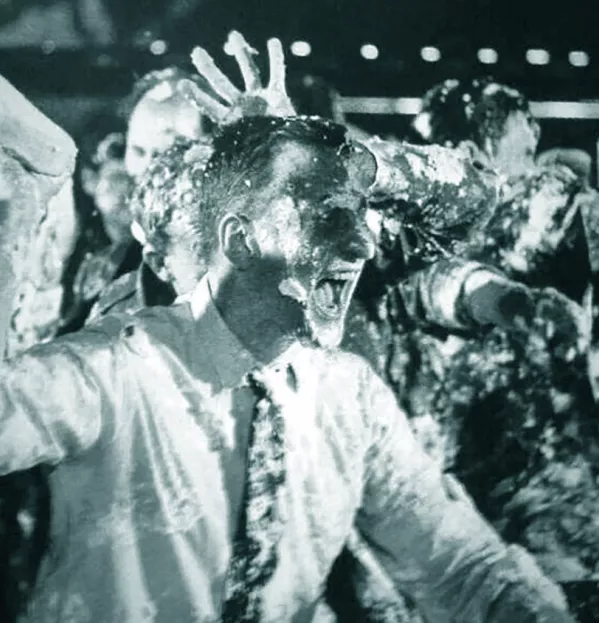Question Time put Brexit aside for five minutes last week. Instead, it was the turn of Scottish education to get a grilling from David Dimbleby et al. Sadly, this was an example of the programme at its worst - a slew of half-baked (if we’re being generous) opinion, political opportunism and obfuscation that left the average viewer scarcely more enlightened than they were at the start.
Dimbleby set the tone by asserting, to some puzzlement, that “Scotland gets very bad educational results, according to all the international standards”. He later clarified that “all the international standards” meant, simply, Pisa (the Programme for International Student Assessment, to give it its full name).
Then it was on to the audience. I’m always reminded of that scene in Flash Gordon when future Blue Peter presenter Peter Duncan has to plunge his hand into a tree containing some pustular, scorpion-like beast - what horribly malformed opinions lie in wait?
We started with one woman’s subtle argument that “the education system has completely failed”. Like a glutton at a sushi conveyor belt, there was some grasping at the air - random, context-free numbers were plucked. Scotland “needs 600-plus teachers, there are 30 maths teachers needed” - and an assertion that teachers (all teachers?) “can’t control the pupils”.
The same woman knew a maths teacher with an S1 pupil who could not count up in twos. But what were the circumstances? Did the child have additional needs? Were they a refugee from a war-ravaged country? Had they just been confused by how the question was presented? Who knows?
Providing a bit of nostalgia for long-time observers of Scottish education, we had erstwhile education secretary Mike Russell reminding us of the patrician scorn he used to direct at anyone who challenged his version of events. It was a “myth” that Scotland got very bad educational results, he said, skating over the 2016 Pisa results that his colleague and current education secretary John Swinney described as “uncomfortable reading” at the time. Russell said Curriculum for Excellence was “a modern way of running education, which is highly successful” - let’s just say that’s not a uniformly held view - and denied that first minister Nicola Sturgeon had barely mentioned education in her SNP conference speech (I watched the whole 50 minutes: it got a few seconds).
Fraser Nelson, editor of The Spectator, resembled a medieval minstrel as he bade viewers to gather round to hear that there was once such a thing as “the legend of Scottish education”, which had taken a “battering” from the dread force of the “so-called Curriculum for Excellence”. This had led to (gasp) graphic novels in English lessons. He didn’t say why this was such a bad idea, and inadvertently dissed my degree - I did French at Glasgow and studied these newfangled graphic novels in the 1990s.
Nelson also relayed the experiences of a teacher who had told him about “this thing called interdisciplinary learning where you’ve got bar charts shoved into Shakespeare”. Like experiments on the “guinea pigs in some never-ending educational laboratory” (his description of Scottish teachers), this sounds like a pretty painful procedure.
The problem with political panel shows is that people tend to accept or reject the scattergun “evidence” depending on their pre-existing views. It’s about as far from the Socratic method as you can get.
Former Scottish Labour leader Kezia Dugdale didn’t join in all the fun. Instead, she soberly observed: “I think we need a little bit of perspective here. We still have an excellent education system in Scotland - it’s just not as good as it used to be.”
Nuance on Question Time? It’ll never catch on.
Henry Hepburn is the news editor for Tes Scotland. He tweets @Henry_Hepburn
